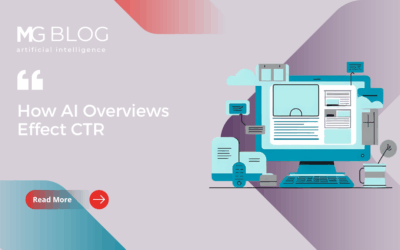When you look back at the last few decades of tech media coverage, there are some standout topics that have sustained long interest cycles — the rise of the internet, the advent of mobile apps, cloud — and most recently, artificial intelligence (AI).
AI has been a lightning rod for media coverage over the past four years, but according to a research report conducted by Merritt Group’s tech PR experts, the volume of AI coverage began to level out beginning in 2017.
Have we overhyped AI in the press?
Organizations today are finding it harder than ever to secure media interest around their artificial intelligence (AI) initiatives. Why? Because we’re in an era “after the splash” of jaw-dropping headlines — with today’s coverage driven less by the “wow” factor, and more by the “where next” and “so what” sensibilities of seasoned tech reporters who get inundated with pitches for AI coverage every day.
Amid this flood of potential AI stories — too much hype is making its way into the news. Exaggerated claims in the press about the intelligence of computers is not unique to our time and, in fact, goes back to the very origins of computing. But over the past three years, hype around topics like machine learning and deep learning has created an avalanche of opportunistic journalism — or what industry influencers may call an “AI misinformation epidemic.”
What does this mean for AI companies?
The definition of AI is muddied. This is problematic for the industry because distorted claims can drown out legitimate AI news. In fact, a growing number of researchers working in the field worry that the inaccurate and speculative stories about AI will create unrealistic expectations for the technology, which could ultimately threaten its future progress. Sifting through the AI hype is harder than ever, and business leaders find it difficult to determine who is actually using AI, and who is not.
How can companies cut through the noise and tell an impactful story?
With the speed of coverage slowing around AI, companies need to figure out which stories are most important to tell. Merritt Group’s extensive analysis of the current media landscape reveals four key differentiators CMOs should consider as they develop their storytelling strategies:
1. Prove how AI will change the world — one “persona” at a time. Identify problems in a unique way or ways that are untold, and show how AI can address those problems in customized ways for specific groups of people. The more people the problem impacts — and the more tailored your solution to that problem is — the higher-tier coverage you will garner.
2. Don’t obsess about white space, focus on the opportunity. Tech reporters are inundated with funding announcements, new product launches, news of AI-powered startups getting funding, releasing new products, etc. by the week. They may have trouble sifting through to identify offerings that are truly unique and competitive. Instead of searching for white space in a busy B2B world, make sure your media strategy also includes impactful storytelling, smart content, and crisp messaging around existing, real-world deployments and present use cases.
3. Identify how AI can revolutionize organizational operations, not just products. Single AI platforms, collaboration tools or plug-and-play algorithms have all had their heyday of tier-one coverage. Tomorrow’s headlines are increasingly about teaching complex skills across the organization and helping people to work better, get smarter and think differently. Your product and/or platform will garner more attention if it impresses the overall workforce as much as it wows your data scientists and marketing teams.
4. Recognize where you’re adapting versus innovating. Be realistic about competitive technologies that are already in the marketplace and don’t try to rename or rebrand them as your own. Instead, acknowledge how your platform or product offers something similar, but then innovates beyond what your competitor can offer. Tell that story via hard facts and proof, not just marketing jargon.
Merritt Group understands the challenges businesses face when it comes to cutting through the hype and marketing to audiences who may be skeptical of AI. We have the expertise to elevate your brand among top-tier media outlets and industry influencers.
If your company is struggling for differentiation in the AI landscape, or if you could use some help telling your AI story, email Suzanne Block (block@merrittgrp.com) for a free consultation.



